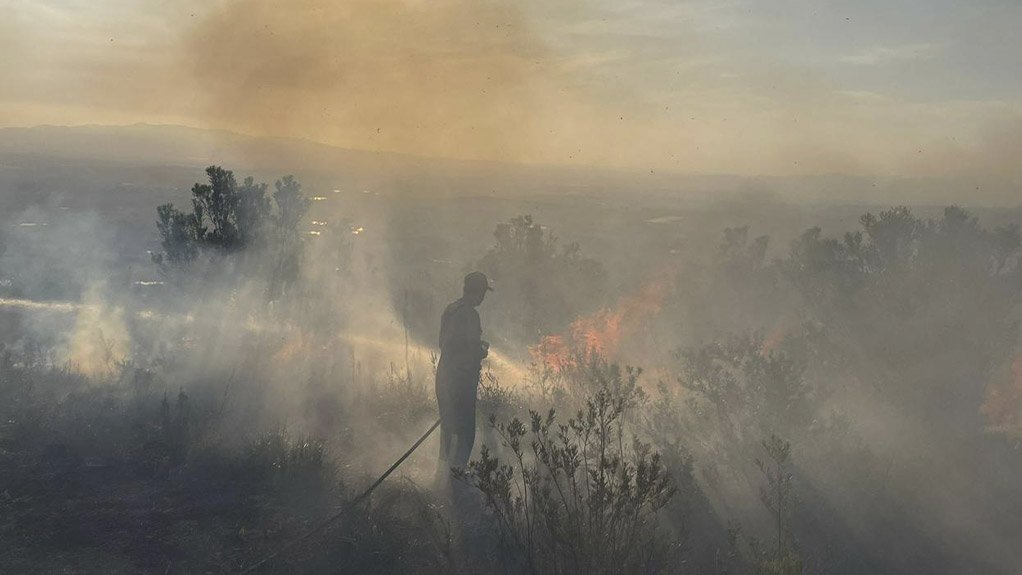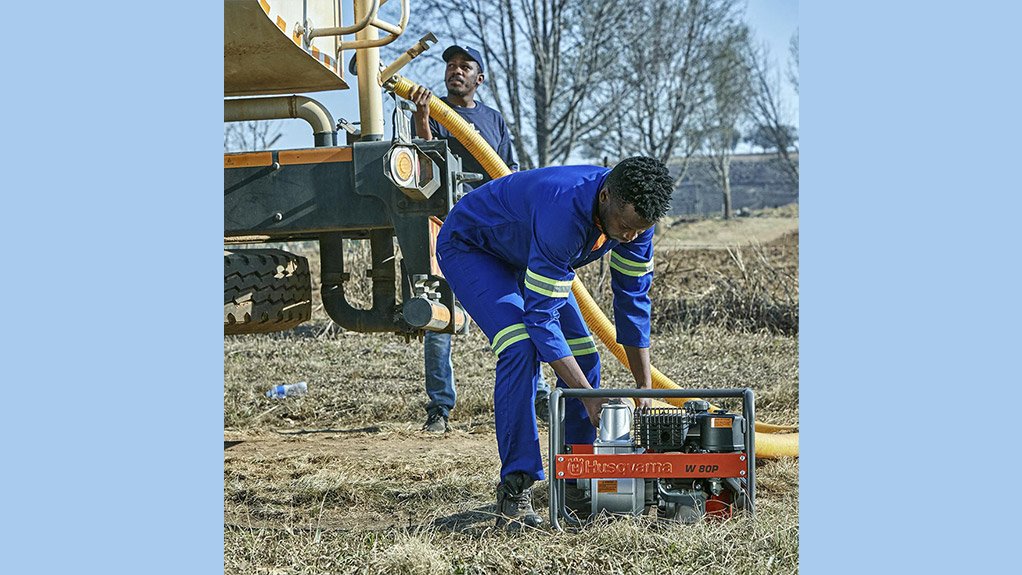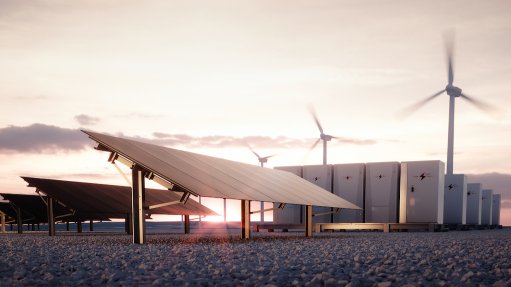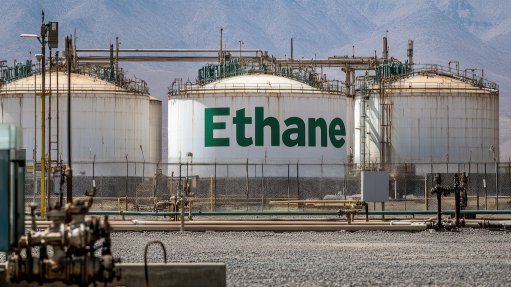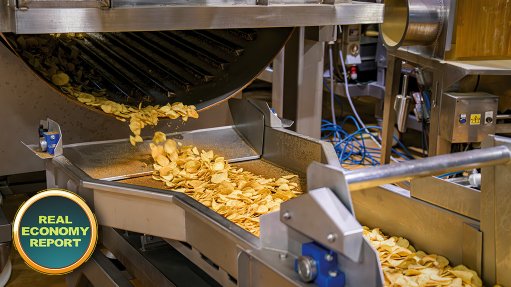FIGHT FIRE WITH FLOW: A Step-by-Step Soakdown Strategy
This article has been supplied and will be available for a limited time only on this website.
PLUS unexpected yet practical uses for a water pump that could save your land and livelihood
According to the International Association of Wildland Fire, unwanted wildfires across South and Southern Africa have surged in both number and intensity over recent years. Many have been major or catastrophic. So when you live in South Africa, you make a plan. You have to. Because, whether sparked by nature's hand or human carelessness, wildfires don't ask permission; they take what they want.
And like the rest of the world, climate change has become a key driver in increasing wildfire risk and devastation. “Fire season has become fire year,” says Charles Henderson, Business Development Manager at Husqvarna South Africa. “The flames aren’t sticking to the calendar anymore. Fires are flaring up earlier, burning hotter, and lasting longer. We can no longer rely on seasonal patterns. Wildfire preparedness is now a year-round necessity."
That’s where a water pump proves its worth. “In a fire, every second matters. If you have access to an alternative water source, a portable water pump allows you to create a wet buffer zone around your home or infrastructure,” explains Henderson. Why? “Because water-soaked ground doesn’t burn.”
He shares how to use a water pump to saturate the ground and help protect your home in the event of a wildfire:
1. Identify a water source
Confirm both the source and the availability of the water you’ll need, whether it’s a dam, river, borehole, or JoJo tank and ensure it availability when needed.
2. Position your water pump near the source
Secure the intake hose in the water source, keeping it submerged but off the bottom to avoid mud and debris. Use a strainer to prevent blockages.
3. Connect the discharge hose
Connect the discharge hose to the pump outlet and position it strategically to reach all areas requiring protection.
4. Start the pump
Keep your water pump fuelled and ready at all times. Pull-start or switch it on and let it run briefly to ensure a strong flow.
5. Create a wide buffer zone around your home
Spray the ground around your house, outbuildings, and any wooden structures. Create a wet zone at least 10 metres wide. Focus on:
- Dry grass
- Wooden decks
- Timber fences
- Roof edges and eaves
Wet ground is far less likely to ignite from embers or heat.
6. Soak down nearby vegetation
If time permits, douse any nearby vegetation that could carry fire to buildings. Don’t try to clear it during an active blaze; just drench it.
7. Keep soaking as the fire approaches
Maintain the buffer zone. One person can redirect the hoses as needed while another monitors the pump and refuels when necessary.
8. Be ready to evacuate
Always put safety first. Alert emergency services, and if conditions become too dangerous, evacuate! Lives matter more than property.
But domestic firefighting isn’t the only reason to invest in a water pump. It’s one of the most versatile tools for landowners and farmers.
Henderson shares a few unexpected but practical uses:
1. Draining floodwater
Some areas, particularly KwaZulu-Natal, have periodically experienced devastating floods, causing severe damage. Water pumps are invaluable in these situations, helping to remove water and prevent erosion, property damage, and rot.
2. Irrigating crops during water shortages
Many regions face ongoing water supply challenges, with outages lasting days. Water pumps offer a reliable solution, drawing from tanks, dams, rivers, or boreholes to keep crops irrigated and livestock watered
3. Emergency backup during power outages
When power cuts hit, electric pumps fail and water flow stops. A fuel-powered pump keeps water moving, ensuring critical farm operations continue. For farmers and landowners, having a water pump that runs independently of the grid means you’re not left high and dry when the lights go out - literally.
“A dependable fuel-powered water pump has become an essential tool for farmers, given the unpredictability of power and water supply, as well as shifting weather patterns. And, once you experience the freedom and control it offers, you’ll wonder how you ever managed without it,” concludes Henderson.
Comments
Press Office
Announcements
What's On
Subscribe to improve your user experience...
Option 1 (equivalent of R125 a month):
Receive a weekly copy of Creamer Media's Engineering News & Mining Weekly magazine
(print copy for those in South Africa and e-magazine for those outside of South Africa)
Receive daily email newsletters
Access to full search results
Access archive of magazine back copies
Access to Projects in Progress
Access to ONE Research Report of your choice in PDF format
Option 2 (equivalent of R375 a month):
All benefits from Option 1
PLUS
Access to Creamer Media's Research Channel Africa for ALL Research Reports, in PDF format, on various industrial and mining sectors
including Electricity; Water; Energy Transition; Hydrogen; Roads, Rail and Ports; Coal; Gold; Platinum; Battery Metals; etc.
Already a subscriber?
Forgotten your password?
Receive weekly copy of Creamer Media's Engineering News & Mining Weekly magazine (print copy for those in South Africa and e-magazine for those outside of South Africa)
➕
Recieve daily email newsletters
➕
Access to full search results
➕
Access archive of magazine back copies
➕
Access to Projects in Progress
➕
Access to ONE Research Report of your choice in PDF format
RESEARCH CHANNEL AFRICA
R4500 (equivalent of R375 a month)
SUBSCRIBEAll benefits from Option 1
➕
Access to Creamer Media's Research Channel Africa for ALL Research Reports on various industrial and mining sectors, in PDF format, including on:
Electricity
➕
Water
➕
Energy Transition
➕
Hydrogen
➕
Roads, Rail and Ports
➕
Coal
➕
Gold
➕
Platinum
➕
Battery Metals
➕
etc.
Receive all benefits from Option 1 or Option 2 delivered to numerous people at your company
➕
Multiple User names and Passwords for simultaneous log-ins
➕
Intranet integration access to all in your organisation



